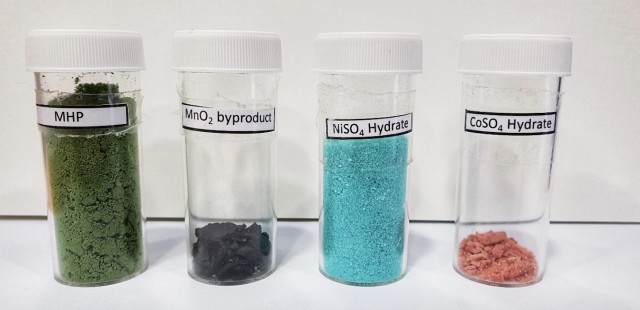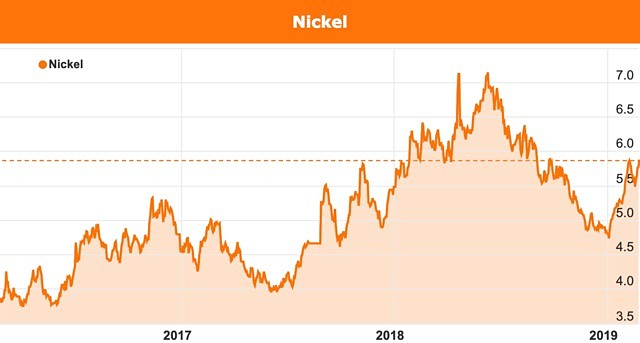Pure Minerals to proceed with ‘game changing’ Queensland Pacific Metals acquisition

Pure Minerals has elected to proceed with the Queensland Pacific Metals acquisition – launching the company into the nickel and cobalt space.
Emerging nickel and cobalt producer Pure Minerals’ (ASX: PM1) has completed due diligence on Queensland Pacific Metals Pty Ltd (QPM) and its assets, with the board officially executing the option to proceed with the “game changing” acquisition.
Pure Minerals first announced its intent to acquire QPM in mid-October last year and paid a $75,000 deposit giving it the exclusive right to scoop up 100% of QPM’s issued capital and assets.
Once Pure Minerals secures regulatory and shareholder approvals to acquire QPM, it will issue 33.3 million shares to the vendors which will be subject to a 12-month escrow period and $500,000 in cash.
Pure Minerals will also issue a total 366.62 million deferred consideration shares to the vendors that are linked to performance milestones that range from nine months after the acquisition to 42 months post takeover.
Once the acquisition has been completed, Pure Minerals expects to have an enterprise value of $2.7 million.
Additionally, current QPM director and experienced lateritic nickel miner John Downie will join board of Pure Minerals.
Queensland Pacific Metals’ appeal
QPM has locked in five-year nickel and cobalt ore supply agreements with New Caledonia-based Societe des Mines de la Tontouta and Societe Miniere Georges Montagnat SARL.
Under the agreements, QPM will import 600,000 tonnes per annum of high-grade New Caledonian ore into Townsville where it plans to establish a new refinery producing nickel sulphate, cobalt sulphate and other valuable by-products.
The expected grade of the ore will be 1.6% nickel and 0.17% cobalt, in line with the ore previously exported to Townsville from New Caledonia during the early 2000s through to 2016.
Importantly, these ore grades are much higher than the resources of some advanced nickel and cobalt projects on Australia’s east coast, such as Australian Mines’ SCONI project (0.69% nickel and 0.05% cobalt) and Clean Teq’s Sunrise project (0.64% nickel and 0.13% cobalt) and are among the highest grades in the entire Asia Pacific.
The market capitalisation of Australian Mines (ASX: AUZ) is $110 million, while Clean Teq (ASX: CLQ) is valued at $242 million – highlighting Pure Minerals’ potential.
According to Pure Minerals chairman Eddie King, the appeal of QPM’s ore supply agreements means the QPM acquisition is “de-risked”. No further investment in exploration is needed in discovering minerals and firming up an economic deposit, which can cost millions and take years.
QPM plans to build a 600,000tpa processing plant in Townsville, which is about 2,000km from New Caledonia and has a “long history” of processing the region’s ore.
“Townsville has a deep heritage in nickel processing and is emerging as a potential battery manufacturing region in Australia,” Mr King added.
With Australia’s long history of digging minerals out of the ground and exporting to other regions for downstream processing, QPM and Pure Minerals plan to change the story.
The duo intends to capitalise on the added value from downstream processing and generate battery-grade nickel and cobalt sulphate for the rapidly growing battery sector.
Processing technologies
As part of the value-add downstream processing strategy, QPM has licenced the Direct Nickel Projects’ proprietary DNi technology to produce a nickel and cobalt mixed hydroxide precipitate from the New Caledonian ore.
QPM has also been collaborating with Australia’s top research body the CSIRO to evaluate the most economic processing option for transforming the mixed hydroxide precipitate into the battery-grade nickel and cobalt sulphate products.

Queensland Pacific Metals produced products in conjunction with the CSIRO.
Pure Minerals said it was confident the CSIRO flowsheet would ensure the final products met the “most demanding of battery manufacturer specifications”.
Using the combined DNi process and CSIRO flowsheet, QPM produced nickel and cobalt sulphate samples, as well as a manganese dioxide which could become a potential by-product.
With the success of generating battery-grade products, QPM and CSIRO have continued refining and optimising the flowsheet, which will feed into future feasibility studies.
Due diligence, scoping study and offtake
As part of the process, due diligence was undertaken on the New Caledonian ore supply.
Xenith Consulting was engaged to carry out site inspections at the New Caledonian operations and found the producers used “industry standard mine planning and geology processes”.
The consultant also confirmed experienced professionals were in charge of the New Caledonian mines and that the operations were sufficient in size to meet QPM’s proposed processing requirements.
Adding to the positive due diligence process was a scoping study, which revealed the processing plant could produce 25,400tpa nickel sulphate and 3,000tpa cobalt sulphate.
The study also indicated valuable by-products of around 221,000tpa hematite, 8,700tpa alumina and 4,600tpa magnesium oxide could also be generated.
“Based on the assumptions and concept level design work undertaken in the scoping study, QPM has confirmed the commercial potential of the project,” Pure Minerals stated.
Pure Minerals added the results boosted confidence in progressing with further feasibility studies, as well as extensive metallurgical test work and securing regulatory and environmental approvals.
“I am very excited with the results of QPM’s scoping study, which highlights potentially significant value for Pure Minerals’ shareholders,” Mr King said.
“The team can now begin to market the project’s investment metrics to potential offtake parties and strategic parties,” Mr King added.
As part of the strategy to fast-track QPM’s plans, a memorandum of understanding was secured in January with commodity trading house Top Resources Group.
Top Resources has agreed to assist QPM with establishing relationships with companies in Asia and China with a view to bedding down offtake agreements and investment.
Nickel market
Pure Minerals’ QPM purchase comes at a time when the nickel price is back on an upward trajectory with the metal last trading at US$5.70 per pound.
The metal enjoyed an upward ride during the first half of 2018, but similar to other base metals slipped in the second half of the year to drop under US$4.80/lb in early January.
Since the start of the year, though, nickel has rebounded and although below last year’s high of US$7.12/lb, the commodity is well above the 2016 low of US$3.50/lb.

Nickel price gaining momentum in 2019.
Underpinning the metal’s price increase are falling inventories on the London Metals Exchange.
At the start of 2018, nickel levels were above 350,000t and stockpiles have steadily eroded over the last 12 months to hover at 200,000t.
“Nickel has started the year strong with increasing demand from the steel sector and prospects for electric vehicle battery pushing commodity demand upward,” Mr King told Small Caps.
He added nickel’s longer-term outlook was also positive – buoyed by BHP’s decision to revitalise its Nickel West business by expanding operations and building a $55 million nickel sulphate plant.
“Pure Minerals’ strategy is the same – to produce nickel sulphate for electric vehicles and lithium-ion batteries with our added advantage of having ore supply from a New Caledonian producer,” Mr King explained.
